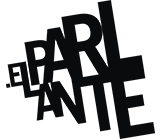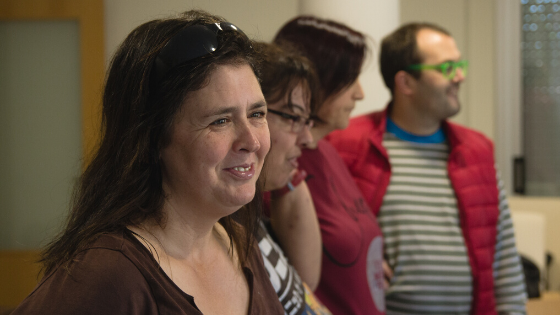
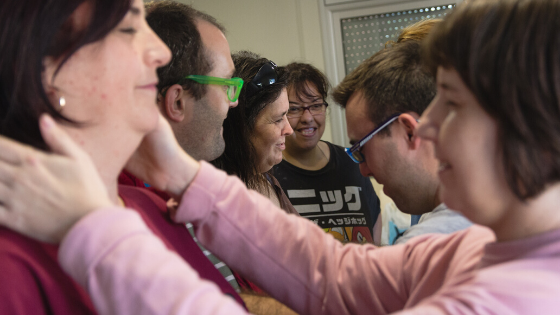
They say they are special or that we hurt their feelings if we call them disabled… Have you ever asked a person with a functional or intellectual disability how they want you to treat them? Talking to them too loudly, holding hands to cross the street or assuming that they are always happy, are just some of the situations to which disabled people are exposed. Even so, that people see the fact that they are self-employed, work, have a partner or go partying exceptionally.
But how do we live in this plural and complex society if we do not know all the sensitivities that coexist around us, if the media continue to configure an image of totally exclusionary “normality”? With these concerns and the breath of a new adventure, in elParlante We have taken on the challenge of broadening our horizon to work on diversity from a new perspective, that of disability.
We find an empowered group
In Sant Vicenç dels Horts we found ourselves with the aim of creating an audiovisual piece that would help break with the stereotypes that exist about disabled people and the perception that exists of normality. At the Iris Foundation , Laura, Sandra, Iban, Lidia, Juanjo, Maricarmen, Manolita and Berta were waiting for us.
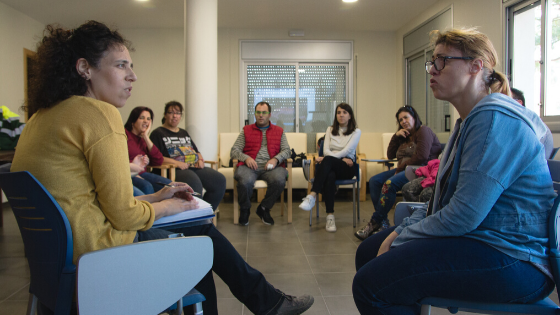
“They look down on us”, “they treat us badly”, “I don’t want to be treated like a bug”, “I am normal”.
Phrases that emerged during the first sessions of knowledge and trust, with the group of participants of the project on disability that we do with the Iris Foundation.
Leti and Laura, educators of the project, had thought of this first day as a space to know and listen to the needs raised by the group. And they met with some protest people, who are very clear about things, above all, what their image is in society. “They look down on us”, “they treat us badly”, “I don’t want to be treated like a bug”, “I am normal”, they say.
Among their demands, they want to be called disabled people, not special people, and they want to be treated normally, as ordinary people, with jobs, partners, hobbies, and a well-defined sexuality. Although, perhaps, they go to the doctor and therapy a little more than average, or have the occasional privilege, they say: “cheaper public transport and free entrance to Tibidabo”.
The moment of collective creation
Through theater and play, the group of participants lowered the barrier. Now we find a group more open to learning new things, to working in teams, willing to talk about discrimination and inclusion in the first person. To think and recreate situations in which they have felt excluded. With the certainty that we can share the result of this project with their families and with the entire community of neighbors of Sant Vicenç dels Horts.
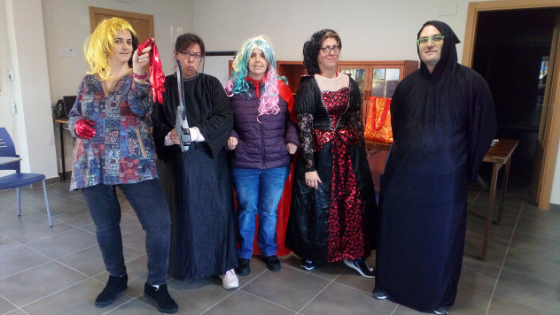
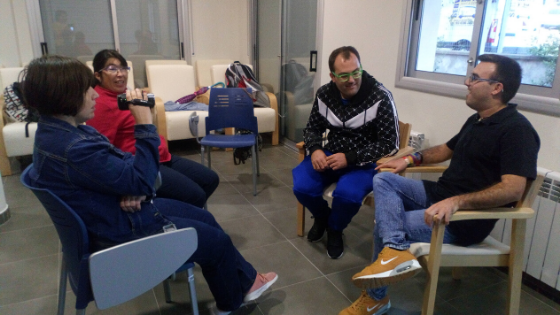
Finally, the time has come to write the script, to act, to record… Like all groups, there are always many ideas and stories to tell, some more personal, others funny and full of black humor, others of love, horror or mystery. Now we have a topic, the argument will talk about disability bluntly.
As they say in the group: “Nobody knows what it’s like to work with us until you’re inside.” And what better way to immerse yourself in the universe of disability than through its protagonists, the emotions that move while watching a good film?
Find out about the progress of this and all our projects, following elParlante’s social networks. If you still don’t receive our newsletter, sign up here.
